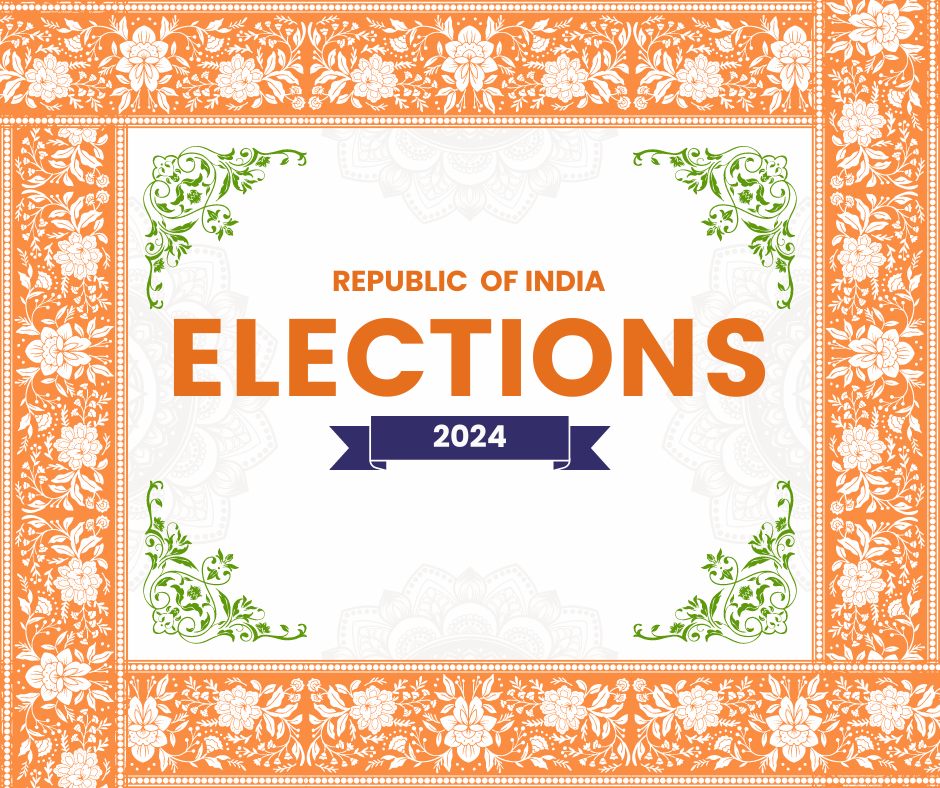In the vibrant democracy of India, elections are not mere events; they are monumental spectacles that shape the nation’s destiny. As we step into the year 2024, the anticipation and fervor surrounding the Indian Election 2024 are palpable. With each passing year, the Indian electorate evolves, influenced by a myriad of factors ranging from socio-economic dynamics to technological advancements.
The Political Canvas
Key Players
In the intricate tapestry of Indian politics, several key players vie for power and influence. From established political stalwarts to emerging contenders, the Indian political landscape is characterized by diversity and dynamism. Parties such as the Bharatiya Janata Party (BJP), Indian National Congress (INC), and regional forces like the Aam Aadmi Party (AAP) and Trinamool Congress (TMC) command significant attention and resources, shaping the contours of electoral discourse.
Emerging Trends
As the digital revolution continues to redefine communication and outreach, emerging trends in electioneering have become increasingly prominent. Social media platforms serve as battlegrounds for political messaging, enabling parties to engage with voters on a personalized level. Additionally, the rise of data analytics and targeted campaigning has revolutionized the way political parties strategize and mobilize their support base.
Socio-Political Dynamics
Demographic Dividends
India’s demographic diversity is both a challenge and an opportunity in the electoral arena. With a youthful population comprising a significant portion of the electorate, issues such as employment, education, and healthcare resonate deeply with voters. Political parties must navigate these demographic dividends adeptly, addressing the aspirations and concerns of different demographic segments to secure electoral success.
Regional Realities
One of the defining features of Indian politics is its regional dynamics. Each state presents a unique socio-political milieu, characterized by distinct linguistic, cultural, and economic factors. Understanding and leveraging these regional realities is crucial for political parties seeking to expand their footprint beyond traditional strongholds. Coalition politics often plays a decisive role, with alliances and partnerships shaping the electoral arithmetic in diverse states.
The Technological Frontier
Digital Democracy
In the era of digital democracy, technology serves as a potent tool for political engagement and mobilization. From voter registration drives to online fundraising campaigns, technology has revolutionized the electoral process, making it more inclusive and accessible. Mobile applications, interactive websites, and virtual town halls empower citizens to actively participate in the democratic process, transcending geographical barriers.
Cybersecurity Challenges
However, the proliferation of technology also brings forth cybersecurity challenges that warrant careful attention. The safeguarding of electoral infrastructure and data integrity is paramount to ensure the integrity and credibility of the electoral process. Heightened vigilance and robust cybersecurity measures are imperative to thwart potential threats such as hacking, misinformation campaigns, and electoral fraud.
The Road Ahead
Stakeholder Engagement
As India gears up for the monumental event of the Indian Election 2024, stakeholder engagement assumes paramount significance. Political parties, civil society organizations, media outlets, and citizens must actively collaborate to uphold the sanctity of the electoral process and foster a culture of transparency and accountability. Public discourse should be characterized by civility and respect, allowing for the free exchange of ideas and perspectives.
Voter Awareness Initiatives
Moreover, voter awareness initiatives play a pivotal role in ensuring high voter turnout and informed decision-making. Educational campaigns, voter registration drives, and civic awareness programs empower citizens to exercise their franchise responsibly, thereby strengthening the foundations of democracy. Every eligible voter must be equipped with the knowledge and resources necessary to participate meaningfully in the electoral process.
The Indian Election 2024 is scheduled to take place in multiple phases, spanning from April to June in 7 Phases with counting on 4th June 2024.
- Phase 1: April 19, 2024
- Phase 2: April 26, 2024
- Phase 3: May 1, 2024
- Phase 4: May 8, 2024
- Phase 5: May 12, 2024
- Phase 6: May 19, 2024
- Phase 7: June 1, 2024
The Indian Election 2024 stands as a watershed moment in the annals of Indian democracy. It is a testament to the resilience and vibrancy of India’s democratic ethos, wherein the collective voice of the people shapes the course of the nation. As stakeholders across the spectrum come together to navigate the complexities of electoral politics, let us reaffirm our commitment to upholding the principles of democracy and fostering an inclusive and participatory electoral landscape.
Know all details of Indian General Election 2024 at https://elections24.eci.gov.in/
